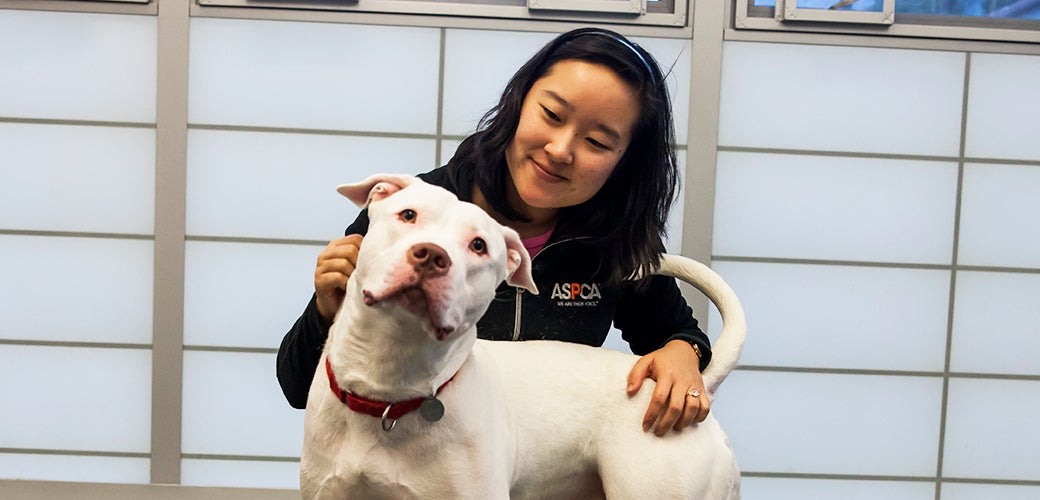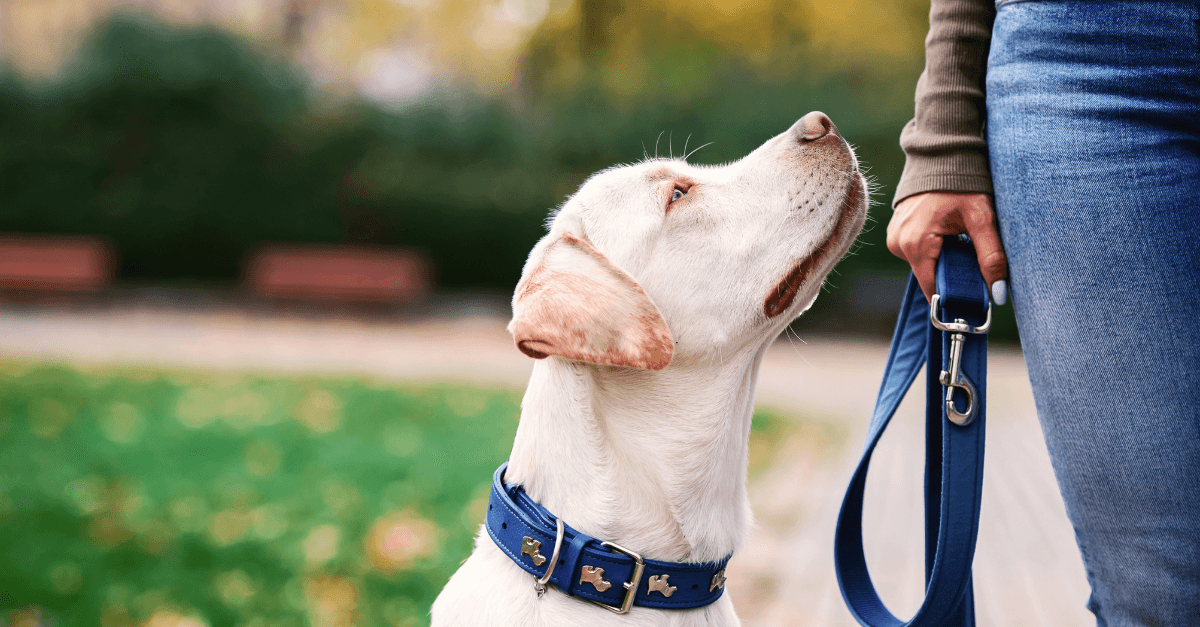Recognizing the Role of a Veterinary Behaviourist in Pet Training and Wellness
The duty of a veterinary behaviourist is crucial in dealing with the elaborate partnership between pets and their owners. They integrate vet medication with insights from animal behavior science to deal with concerns like aggression and stress and anxiety. Unlike conventional instructors, their method concentrates on the underlying reasons for these actions. This nuanced perspective questions regarding the performance of traditional training techniques and exactly how a deeper understanding can transform pet well-being. What strategies do they use to attain these results?
What Is a Vet Behaviourist?
A vet behaviourist is a specialized professional that concentrates on understanding and dealing with the behavioral problems of animals, particularly animals. Their know-how incorporates vet medicine and pet actions science, enabling them to diagnose and deal with a large range of behavior troubles - canine behaviourist near me. These experts often hold postgraduate degrees, such as a Master's or PhD in pet actions, and are certified by appropriate organizations, guaranteeing they possess a deep understanding of pet psychology
Vet behaviourists evaluate animals via comprehensive monitoring and evaluation, taking into consideration variables such as genetics, environment, and training background. They create tailored habits modification plans, which might include desensitization methods, favorable support techniques, and environmental modifications. Collaboration with animal owners is important, as they provide support and support throughout the training process. Eventually, the goal of a veterinary behaviourist is to improve the wellness of the animal while promoting an unified relationship between animals and their owners.
The Value of Understanding Pet Habits
Recognizing animal habits is necessary for both family pet proprietors and professionals in the field of pet care, as it lays the foundation for efficient communication and training. Identifying just how animals perceive their setting and react to stimulations enables caretakers to develop a more harmonious living scenario. Understanding into behavior hints, such as body language and articulations, cultivates stronger bonds in between family pets and their proprietors. By appreciating the all-natural instincts and demands of different species, people can customize their training approaches to accommodate these aspects, promoting far better learning and teamwork. Furthermore, a strong grasp of behavior scientific research aids in identifying stress factors and possible triggers, permitting proactive treatments. On the whole, comprehending animal actions not only boosts the wellness of family pets but likewise enhances the experiences of those that look after them, eventually bring about much healthier, better partnerships.
Common Behavioral Issues Addressed by Vet Behaviourists
Vet behaviourists often deal with typical behavior issues in pets, consisting of aggressiveness and anxiety feedbacks. They likewise concentrate on anxiety and stress and anxiety administration, which can substantially affect an animal's well-being. Understanding these problems is crucial for developing effective training and intervention methods.
Aggressiveness and Anxiety Actions
While lots of family pet owners might check out aggressiveness and fear reactions as straightforward behavioral problems, these complex reactions usually stem from underlying anxiousness or previous trauma. Vet behaviourists play a crucial duty in determining the root creates of these habits, which can materialize in various kinds, including growling, attacking, or excessive worry of certain situations. Recognizing these triggers is important for creating effective training methods customized to each pet dog's distinct scenarios. Behaviourists use methods such as desensitization and counter-conditioning to help pet dogs handle their fears and aggressiveness. Furthermore, they enlighten pet proprietors regarding suitable management methods, stressing the value of perseverance and consistency. Addressing aggressiveness and anxiety feedbacks not only boosts the family pet's quality of life however also strengthens the bond in between pet dog and proprietor.
Anxiety and Stress Management
Anxiety and stress are common problems that numerous pets deal with, frequently resulting from changes in their environment, absence of socialization, or previous adverse experiences. Vet behaviourists play a crucial duty in recognizing the underlying root causes of these concerns. They use different methods, including behavior adjustment, desensitization, and counter-conditioning, to aid animals handle anxiousness. Furthermore, they may recommend ecological changes, such as developing risk-free spaces or providing enrichment tasks that promote leisure. Partnership with pet dog owners is important, as behaviourists direct them in understanding their pet dog's signals and applying reliable coping approaches. By addressing anxiousness and stress and anxiety, veterinary behaviourists add significantly to enhancing the general well-being and lifestyle for pet dogs and their family members.
How Veterinary Behaviourists Differ From Typical Trainers
Vet behaviourists differ from standard fitness instructors primarily in their academic histories and training. While standard fitness instructors frequently concentrate on obedience and basic commands, vet behaviourists emphasize understanding and dealing with underlying behavior problems, integrating clinical factors to consider into their approach. This distinct emphasis allows them to provide a much more extensive treatment for family pets with intricate behavioral difficulties.
Education and Training Distinctions
Comprehending the difference between veterinary behaviourists and typical instructors is necessary for pet proprietors looking for effective training services. Veterinary behaviourists have postgraduate degrees in vet medication, commonly adhered to by specialized training in pet practices. This education furnishes them to address complicated behavioural problems that may stem from medical conditions or emotional elements. On the other hand, traditional fitness instructors normally have qualifications from training programs that concentrate on obedience and standard commands without diving into the underlying emotional or clinical elements. While both specialists aim to enhance pet practices, veterinary behaviourists can diagnose and deal with behavioral troubles holistically, integrating medical expertise right into training methods. This vital difference highlights the importance of choosing the ideal expert based upon the animal's specific demands.
Emphasis on Behavioral Issues
Addressing behavioral issues calls for a nuanced strategy that distinguishes vet behaviourists from conventional instructors. While traditional fitness instructors commonly focus on obedience and fundamental commands, vet behaviourists explore deeper right into the underlying reasons of problematic behaviors. They employ an extensive understanding of pet psychology and therapy techniques, which are rooted in scientific study. This expertise enables them to determine issues originating from anxiety, concern, or aggression, as opposed to merely attending to surface-level symptoms. Furthermore, vet behaviourists examine the pet dog's overall wellness, taking into consideration environmental variables and the animal's history. By incorporating medical expertise with behavioral techniques, they provide customized remedies that advertise lasting behavioural modification, making sure both the pet's and proprietor's high quality of life are markedly improved.
Medical Considerations Consisted Of
While typical instructors may overlook underlying medical issues, veterinary behaviourists prioritize an extensive analysis of a pet dog's wellness as a fundamental action in resolving behavioral troubles. This strategy permits them to recognize possible clinical problems that may add to unwanted behaviours, such as anxiety, pain, or neurological problems. By integrating clinical assessments right into their practice, veterinary behaviourists can collaborate with veterinarians to ensure an alternative understanding of the family pet's wellness. In addition, they can advise ideal therapies or modifications to training plans based upon clinical findings. This comprehensive perspective distinguishes vet behaviourists from typical fitness instructors, as they attend to both behavioural and health-related variables, inevitably bring about a lot more effective and sustainable outcomes for family pets company website and their owners.

The Process of Dealing With a Vet Behaviourist
Working together with a vet behaviourist entails a methodical strategy to attending to a pet dog's behavioral issues. At first, the procedure begins with a considerable evaluation, where the behaviourist collects in-depth details about the family pet's background, setting, and specific habits that are troublesome. This typically includes surveys, meetings with the family pet proprietor, and sometimes monitorings of the pet dog in its environment.
Complying with the analysis, the veterinary behaviourist develops a tailored intervention plan that may include behavior adjustment methods, training methods, and, if essential, referrals for clinical analyses. canine behaviourist near me. The strategy is designed to be practical and achievable, ensuring that it fits seamlessly into the animal owner's lifestyle
Subsequent follow-up sessions are necessary to keep track of progress, adjust approaches, and give support. This joint initiative not only intends to customize undesirable habits but additionally to enhance the total wellness of the family pet, guaranteeing an unified connection in between the animal and its owner.
Enhancing Your Pet dog's High quality of Life Via Behavioral Assistance
Enhancing a pet dog's high quality of life via behavioral assistance is crucial for fostering a healthy and balanced and fulfilling connection between family pets and their owners (veterinary behaviour). Veterinary behaviourists play a vital role in determining and addressing behavioral concerns that may impede a pet's wellness. Via tailored strategies, they assist relieve stress and anxiety, concern, and aggressiveness, eventually advertising an extra balanced and pleased family pet
Behavior assistance encompasses different methods, consisting of favorable reinforcement, ecological enrichment, and socialization. By executing these techniques, proprietors can develop a nurturing environment that motivates favorable habits. This not only improves the animal's psychological wellness yet also strengthens the bond between pet and owner.
Furthermore, routine consultations with a vet behaviourist assurance that any kind of arising behavior concerns are quickly attended to, protecting against rise. On the whole, purchasing behavior assistance is a positive method that considerably enhances an animal's life, resulting in improved physical and mental health and wellness outcomes.
Frequently Asked Inquiries
What Credentials Do Vet Behaviourists Possess?
Vet behaviourists typically hold a vet level, adhered to by specialized training in animal actions. Several likewise possess certifications from identified companies, demonstrating their competence in dealing with animal actions problems and promoting why not try these out total pet well-being.
Can Vet Behaviourists Recommend Medication for Pet Dogs?


Veterinary behaviourists, having vet degrees and specialized training, can certainly suggest medicine for pet dogs. This capability enables them to address underlying behavior concerns effectively, usually integrating medicinal therapy with behavioral modification strategies for best results.
The Length Of Time Does Behavior Modification Normally Take?
Behavioral therapy period differs substantially, typically varying from a couple of weeks to numerous months. Factors influencing this timeline include the pet's particular problems, consistency of training, and the owner's interaction at the same time.
Are Remote Assessments Available With Vet Behaviourists?

Exactly how Much Does a Veterinary Behaviourist Consultation Expense?
The cost of a vet behaviourist examination normally ranges from $100 to $300, depending on variables such as place, experience, and session length. Additional charges may obtain follow-up appointments or specialized services.